We live in a small hill town with the smooch of simplicity. We tend not to be ‘Hindi’ but sub-consciously we have a craze for Bollywood. We pray to our deity offering flowers of rhododendron and make country liquor with the same flower. We love to laugh and make comic statements which is a borne fact, as our favorite pass-time is ‘Humjayega’s jokes’ and our frisky moment in a funeral house is playing cards.
We love giving expressive exclamatory tones while speaking as- “amboo”, “apuii”, “lyaa”, aieeh”, etc. We even have our own self invented linguistic lingo as- ” syatis”, “sacri”, “ghanta”, heabby”, “chuppa”,” lyapax”,etc.
The most interesting part of our linguistic power house is the fusion of English and the native words observed mostly in rural areas, eg: ‘ Boot jutta’, ‘Cap topi’, ‘ Bus gaadi’, ‘plate ko thaal’, “center ko beech,” “corner ko kuna” etc.
Due to the British imperialism once, a colonial hybridism can be observed in the diction of Darjeeling. Here are some examples with the original English and its local derivatives:
KITLI- meaning
ONE
BOOT JUTTA- meaning Boots
BUS GAADI- meaning a Bus
CAP TOPI-meaning a Cap
CAMBIS- meaning Canvas
SENTROBOS- meaning St. Robert’s School
SWISS- meaning a Switch
POP BISKOOT- meaning Puff biscuit
FOGGY – meaning Fog (as in “
BEG/ BYAAG- meaning Bag
YAMMA- meaning Yamaha bike
BUFFMALEY-meaning Bob Marley
ISTANITISE- meaning Stand at ease
EZIKOLTU- meaning “is equal to”
ANGREEZI- meaning English
NEKLISS- meaning Necklace
GO-DAAM- meaning Godown
LIBISTIK- meaning Lip-stick
JURKIN- meaning Jerrycan
PYAKIT- meaning Pocket
MISIN- meaning Machine
TOSH- meaning Toast (as inTOSH ROTI
TACH- meaning a Torch-light
ALAKATRA- meaning Oil and tar
FALLENLANE- meaning Fall in Line
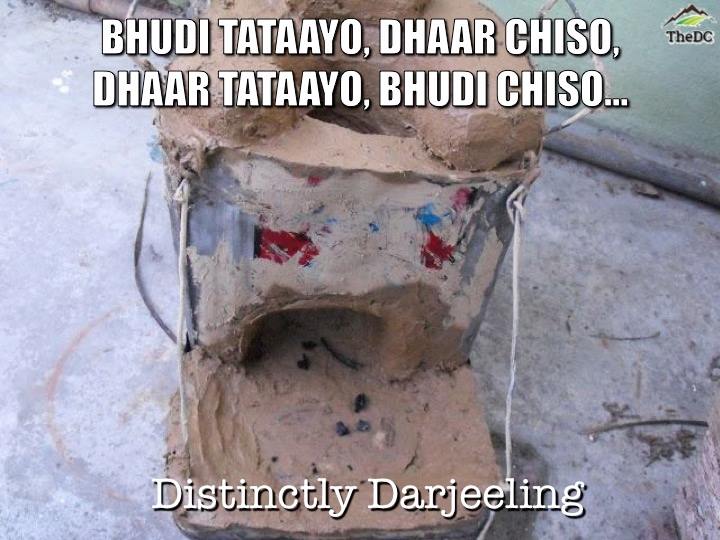
Angeti…tapai chai hebyyy hundai cha es palee
There can be ample of such words which depends on regional usage of things, goods.
I am charmed by the dual speech tonal vibes in which we make our statements. We the hill people have inborn quality of saying the same thing in two ways- Decent way and Indecent way. For eg, Decent way of calling someone- “Yetta aunuhos!”. Indecent way of calling someone- “Yetta munti”.
We often interrelate people and things with Hollywood and Bollywood actors, eg if someone’s father is too strict- ” amboo tero baau ta Amrish Puri chha ni”. If someone’s boyfriend is not so good-looking- ” chyaa! Kadar Khan jasto”. If someone tries to show hyper chauvinism – ” amamama, yo ta Rambo ho ni”. Even if the road condition is bad- ” ghanta ko! yo baato ho ki Om Puri ko gaala!”
There is something interesting about the behavioural habits and verbal diction about the people of Darjeeling. I will cite a few examples:
- If there is
a foggy weather around Ghoom- Jorebunglow, you will say- “yo ta Hunuman leypadheko thaau ho!” - If someone returns back from a ration shop you will ask – “aaju cheeni payo hola?”
- If you touch someone’s feet accidentally with your feet then you will touch your forehead and chest to say – “
bishnu !bishnu !” - If someone in your village passes away then the first plan with your friends would be -“
beluka taas khelnu aaija hai!” - If a boy sees a girl with a loud make-up, he will shout aloud – ” amamama….baini ta FAIR AND LOVELY ko
jhol machurlummai dubera ayecha !” - If a boy looks somewhat fresh then his friend will say – “
aaju tapura handsomepo bhayechas ta…kaalosabun leymukh dhuyis !” - The most renowned fact of Darjeeling is that both
ghodawala andghoda lives on GRASS. - A true verdict laid by the common mass in Darjeeling is Driver ko life,
golaai pachi wife. - The most delicious delicacy is to eat
bhuteko bhaat inkaraai . - If you purchase a new pant, the first thing you do is go to “Tailor line” near Gol Ghaar and cut it short and make it choose
- In
Darjeeling allmiddle aged man is a ‘bada ‘ andmiddle aged woman is a ‘badi ‘ - All colleges in Darjeeling has an awesome place nearby: Southfield- Chowrasta, GC- Graveyard, NP- Freedom and Makailogy.
- In Darjeeling, when you are asked “How are you?” your instant reply would be- “Life is full of
jhyaang jhyaang ,sombay !”
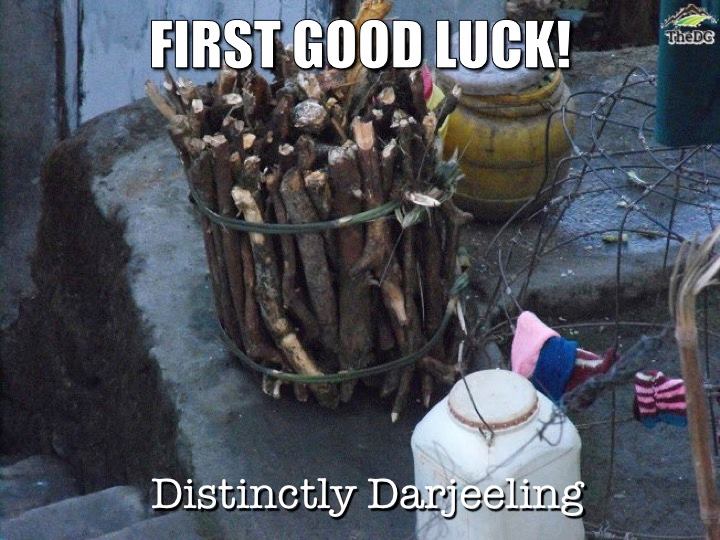
There is a special vibe in the festivals of Darjeeling. We have pristine memories of our own when we bring into the reference of festivals. For example:
- We remember that orange headed ‘Dassai Keera’ flying all over the bloomed
golden headed ‘sayapatri ‘ - We remember the fresh smell of the new clothes and magical steps walked through new shoes
- We remember how tasty were ‘sale roti’ and ‘teel ko mithai’
- We
remeber the solemn odour of ‘tongba ,kodo kochyaang ‘ mixed with ‘fakshya ,langsya ‘ and roasted chicken on the courtyard - We remember the fragrance of ‘
titaaaypatti ‘ and ‘dhoop’ and the beating ofricegrain inside ‘okhali ‘ - We remember the colours of ‘
chudi ,paana ,eeta ,jhandi ,makoot ,bhotay ‘ while playing dice underneath the ‘lingaay ping’ - We remember the tunes of few ‘
malashree ‘ and ‘sorki ‘ sung during the setting oforange sun atwestern horizon - We remember my forehead covered by
red ‘Chamal ko tika’ andjamaara clipped ear with a blessing to be a ‘thulo manchey ‘ - We remember the
housefull relatives, singing, gossiping and ‘kaalo dekchi tobhaat ‘ - We remember the ‘
mela komithaai ‘, ‘lingaay ping koghumai ‘ - We remember my grandpa’s old face and wrinkles with time’s pace sipping the most costly Indian rum.
- We remember my mom’s new
saari and her makeup set coming out in existence after many months - We remember my father’s growing grey hair dyed all black
- We remember my
fist full of coins and currency notes, maybe it was the only time for a child like me to get rich - We remember the digging up of “ban
tarul ”, “ghaar tarul ”, “sakarkhanda ”, “pindaloo ”, “iskoosh kojara ”, “pustakhari ” during Maghaaysakrai - We remember shouting “
uppiya jaa ,ruppiya aaija ” at the arrival of Saunaysakrati at the beat of “naanglo ” - We remember the
crowed town of Darjeeling where people roamed with themost fancy outfits - We remember Darjeeling looking like a constellation during the night time
This is what makes our place a unique one located at a fine corner of the world which corresponds to make us a big “
Writes: Binod Pradhan

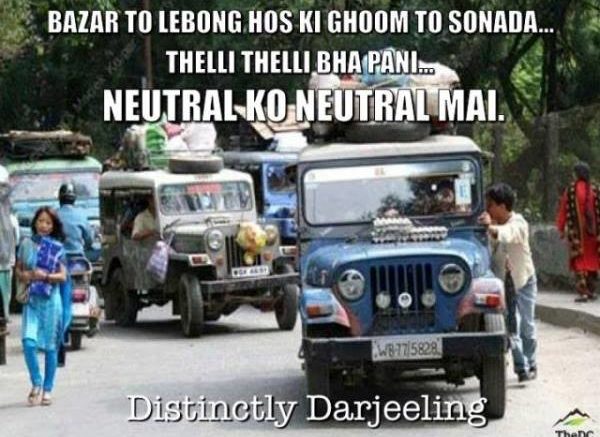

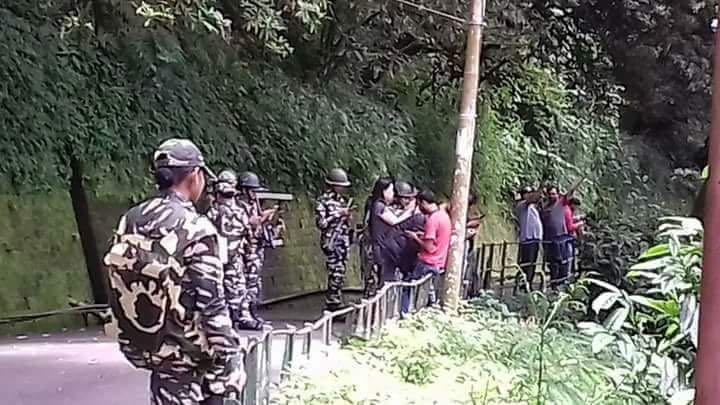
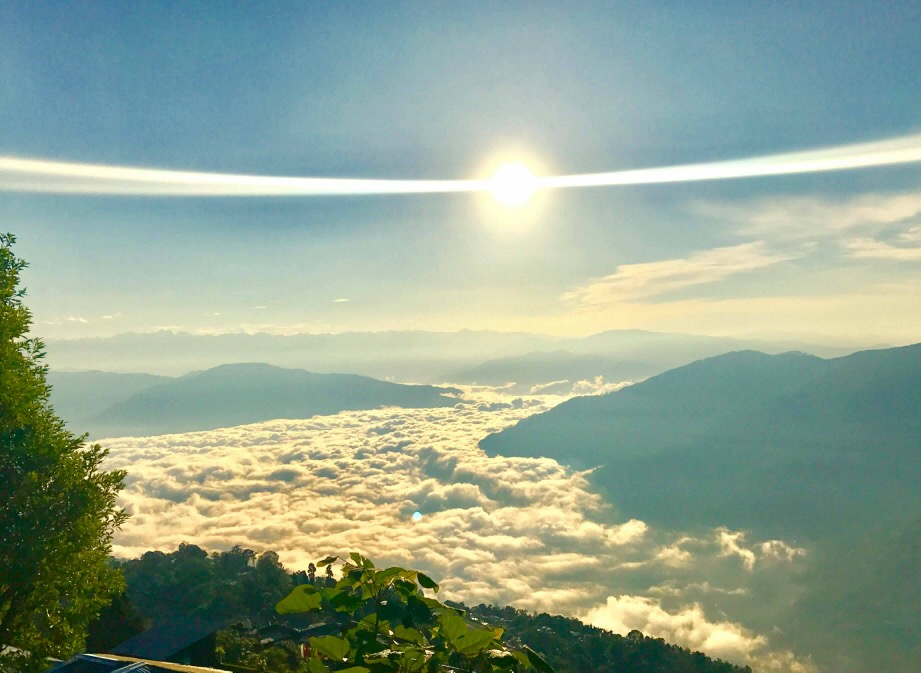
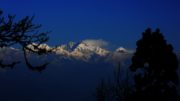
This was great recolection of all my childhood.could not help smiling n laughing all the way to the end while reading this article. Amidst of missing hills(home) so much. Miss home (hills# DJ)
Awesome collection of DARJEELINGS lingo. Very Darjeeling
Amboooooo….